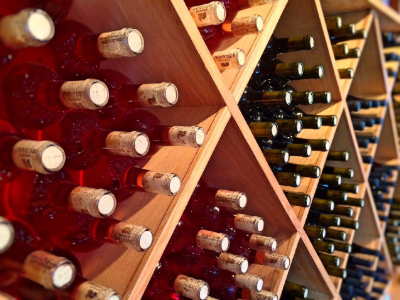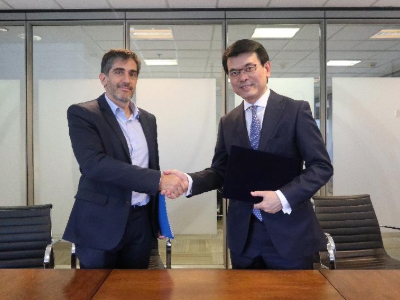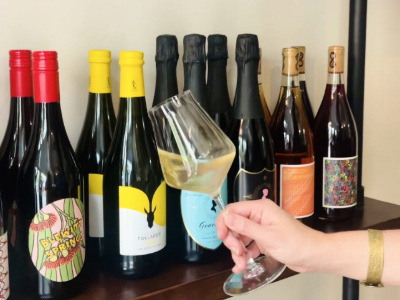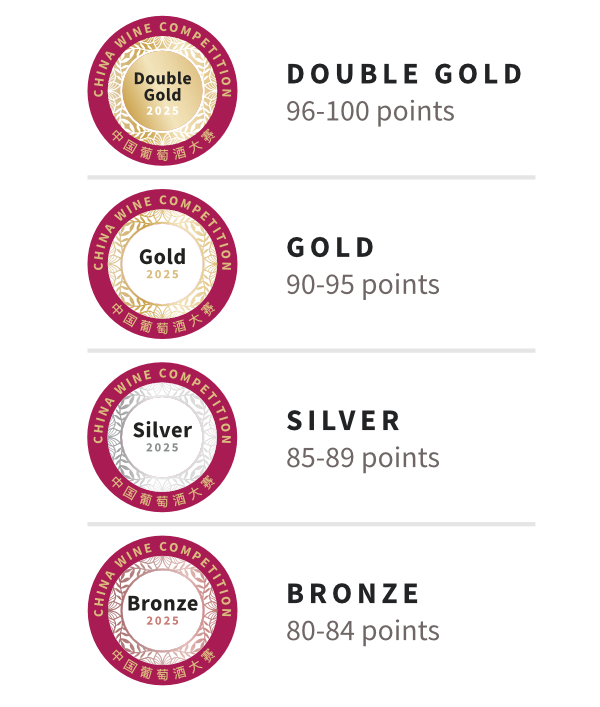November 10 , 2026, Hong Kong

Take a look at how Hong Kong‘s unique advantages have solidified it as a thriving centre for wine trade in the Asia-Pacific region
Hong Kong plays a significant role in the global wine industry and is often recognised as Asia's hub of wine trade despite not being a wine-producing region. The city has conquered a crucial position in the wine sector, thanks to the different initiatives that the HKSAR government has taken to ensure that wineries, merchants, retailers, importers and other industry players would be able to conduct their business smoothly whether they are importing or re-exporting wines from the area. This article explores the ways in which such efforts have made Hong Kong the centre of the wine trade in Asia.
Also Read: Hong Kong's Wine Scene: Who's Who Of The Wine Business
Zero Duty Taxes
The Hong Kong government’s imposition of a 0% duty tax for wine as of February 2008 was a huge leap forward in favour of wine trade, given that there was a 90% duty in the early 1990s. In an interview with Jancis Robinson, Farr Vintners’ Jo Purcell—who has been involved in the wine markets of Hong Kong since 1994—said it was more convenient for the Financial Secretary to assign zero duties as they would not have to make any legislation changes. The phenomenal decrease also proved advantageous to international wine businesses entering the market with the city going from having less than 30 importers to 800 establishments conducting wholesale import of alcoholic drinks in 2024, as per Hong Kong’s Census and Statistics Department.
State-of-the-Art Storage Facilities
Hong Kong is deemed the perfect location for storing wines in Asia due to its logistics and extensive air routes. The city has many spaces equipped with cutting-edge facilities such as temperature controls, security and more, allowing merchants to store cases or bottles of wine at a rental cost. Many investors and industry specialists also prefer Hong Kong’s wine logistics because of the city’s free trade zone status and its government-approved depositories, which are thoroughly checked by the Healthcare Quality Association on Accreditation (HQAA) as part of the Wine Storage Management Systems Certification Scheme.

Image Title and Credits: Wine Storage (Pixabay)
Access to Mainland China
To establish Hong Kong as the Asian wine hub, the government has signed agreements with China, making it easier for international wineries looking to enter the Mainland through Hong Kong. This includes the Closer Economic Partnership Agreement (CEPA) and the Cooperation Agreement on Customs Facilitation Measures for Wine Entering the Mainland through Hong Kong. CEPA has made it easier for international wineries to enter China through Hong Kong, allowing wine re-exported from Hong Kong to China to have zero tariffs. Meanwhile, the Customs Facilitation Agreement meant those re-exported wines could get rapid clearance in Mainland China if the merchant declared the shipment on the online government portal before shipping it.
Also Read: Key Trends Shaping the Alcohol Market in China and Hong Kong
Building Global Relationships
Besides China, from 2008 to 2017 Hong Kong entered into agreements with wine regions like France, Australia, Italy, the USA and more. By signing the Memorandum of Understanding (MOU) on Cooperation in Wine-Related Businesses with the different countries, both parties benefit by using each other’s resources and expertise, thus improving the global wine trade. Hong Kong aids the wine-producing localities by providing them with manpower, storage facilities, investments and more while promoting wines through activities and events like wine tastings. The Asian city also eliminates any worries companies may have about fake products affecting their business as it has strict checks and regulations against counterfeits.

Image Title and Credits: Hong Kong and Argentina MOU Signing
International Wine Auctions
Hong Kong has earned itself the position as a global hub in wine auctions with major names like Christie’s, Sotheby’s and Bonhams conducting auctions in the city. It also has an affluent population willing to invest in the rare and premium wines of the world. According to Sotheby’s Wine & Spirits Market Report 2023, Hong Kong was the third-highest contributor to wine sales for the company at 22 million USD, after France and the US.
Growing Oenophile Population
Events like wine tasting and wine festivals have piqued Hong Kongers’ interest in buying diverse and high-quality wines, Camille Glass and Leigh-Ann of the Crushed Wine Bar shared, “enthusiasm & engagement with the diverse and interesting wines available in the market grew to the extent that WSET opened their first office outside of the UK in the city.” More importantly, the thriving wine culture in Hong Kong as well as China has increased the demand for more importers and retailers to enter the HK market.

Image Title and Credits: Crushed Wine Bar
Owing to the aforementioned factors like zero tariffs, free trade zone status and growing passion for wine, Hong Kong has established its dominance in the Asian wine market with the city having imported 18.5 million litres of wine and re-exporting 4.2 million in the first half of 2024, rightly establishing itself as the hub of wine trade in Asia.
Header image sourced from Unsplash
Related Links
China’s Leading Wine Importers - A Comprehensive Guide For International Brands
China's Wine Demand: Trends And Opportunities For International Wineries In 2025
The 2025 China Competitions results are now live. View 2025 winners.
Key Dates
Super Early Bird Deadline: May 20, 2026
Early Bird Deadline: July 31, 2026
Regular Deadline: October 14, 2026
Warehouse Deadline: October 22, 2026
Judging Date: November 10, 2026
Winners Announcement: November 24, 2026



